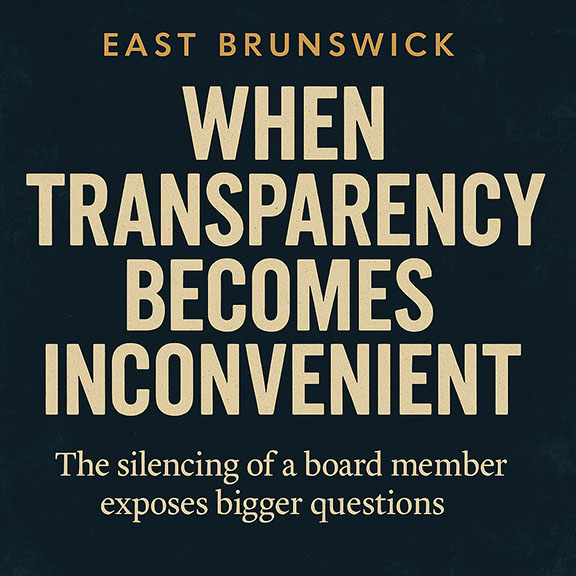When Transparency Becomes Inconvenient
On February 26, 2025, East Brunswick Superintendent Dr. Victor Valeski sent a letter to the New Jersey Department of Education (NJDOE) Ethics Commission requesting an advisory opinion. The subject? Whether Board Member Dr. Lou Figueroa should be restricted from voting on certain “key issues.” Specifically, it appears that Dr. Valeski wants Dr. Lou removed from voting on his future contract.
But here’s what makes this troubling: Dr. Lou Figueroa was just elected by thousands of residents who expected him to represent their voice—especially on matters like administrative accountability, budget decisions, and yes, contract renewals.
Who Is Dr. Valeski Worried About?
It’s becoming clear that Dr. Valeski sees Dr. Lou as a threat—not to the district’s mission, but to his own position. Why else would he take preemptive steps to silence a board member before any vote has even taken place?
Dr. Lou made it clear during his campaign that he would ask hard questions and demand transparency. Many voters supported him precisely because they felt unheard for too long. If the intent behind the advisory opinion is to sideline Dr. Lou before critical decisions are made, it’s not just politics—it’s a betrayal of the public trust.
Democracy Doesn’t Work Like This
When an unelected administrator tries to block an elected official from doing their job, we’ve stepped out of the bounds of democracy.
Imagine voting for a new mayor because you didn’t like how the old one handled budgets, only to find out the town manager is trying to have the mayor’s vote disqualified on key issues. Would anyone consider that fair? Of course not. Yet that’s what’s playing out in East Brunswick.
This isn’t about one contract or one vote. It’s about whether the voices of thousands of residents can be dismissed by a single administrator wielding obscure legal tools.
The OPRA Response Says a Lot
After confirming the date of Dr. Valeski’s letter to the DOE, Jeff Winston submitted an Open Public Records Act (OPRA) request to obtain a copy. The district didn’t deny the letter’s existence—they simply refused to release it, citing the “deliberative process privilege.”
This means the public has no access to a letter that could directly impact whether their elected representative can vote. And yet the administration expects the community to trust that this is all being done in good faith.
A Pattern of Avoidance
This isn’t the first time legitimate questions have been shut down. When residents asked about the funding of the high school hockey team—largely funded by parents—the district claimed it was “too much work” to provide a breakdown. That request was also dismissed as “answered and closed.”
Why is there such a resistance to basic transparency? Why are questions met with legal barriers instead of answers?
A Dangerous Precedent
If Dr. Lou is blocked from voting on a matter as important as the superintendent’s contract—despite being duly elected by the people—what message does that send? It tells future candidates that standing up for the community could get them silenced. It tells residents that their vote only matters until it becomes inconvenient for those in power.
That’s not oversight. That’s control.
What Comes Next?
Some have suggested filing a similar OPRA request with the NJDOE directly. Others have brought up the “Doctrine of Necessity,” a legal principle that allows board members to vote even when a conflict is alleged, if their vote is necessary for a quorum. These are important avenues—but the larger issue remains:
Who decides who gets a voice in East Brunswick?
The November election is coming. Between now and then, residents should be watching, speaking, and demanding answers. Because if a superintendent can eliminate dissent by disqualifying opposition, East Brunswick has much bigger problems than just a budget shortfall.




